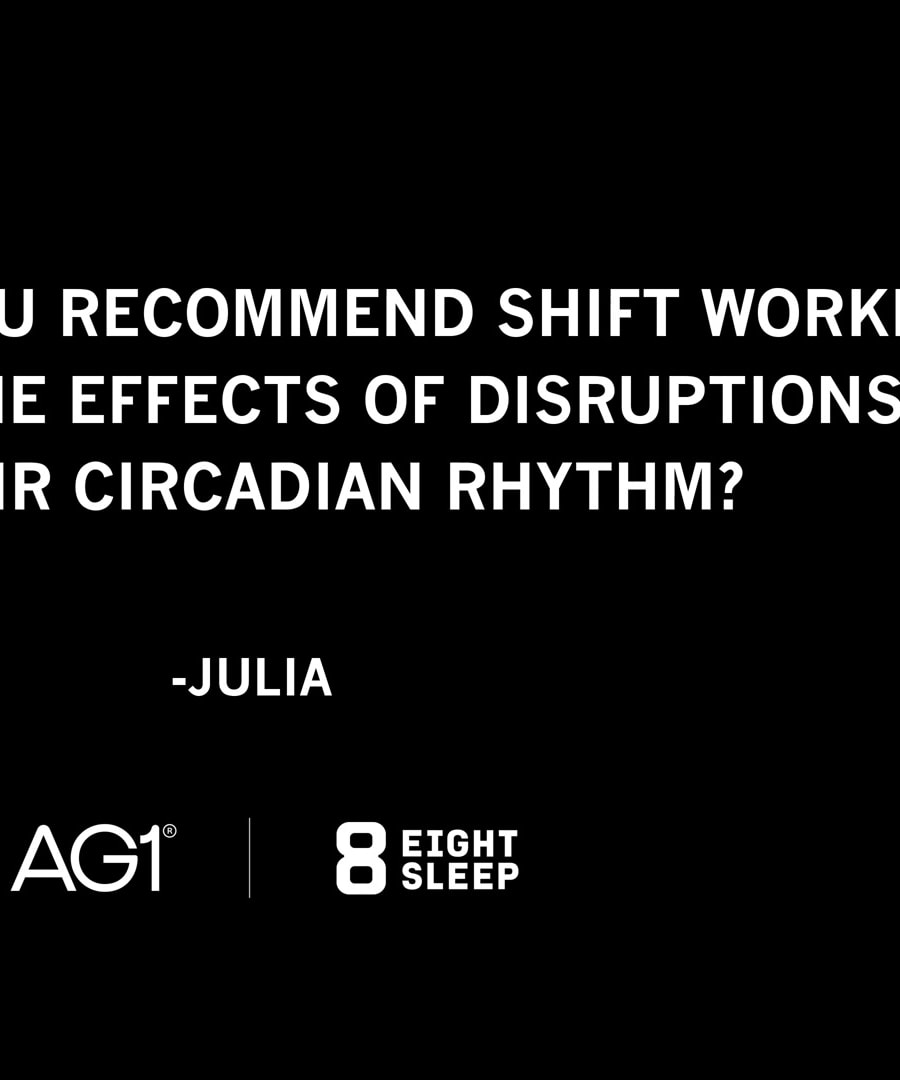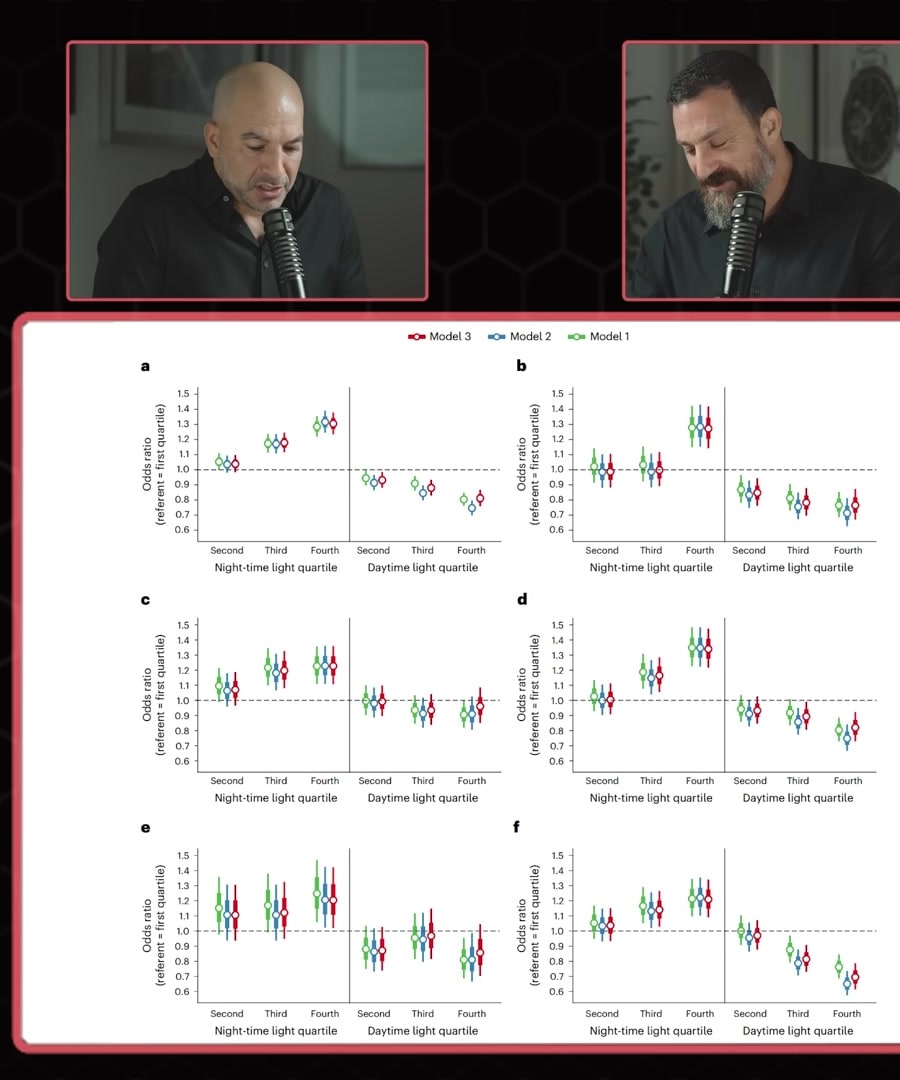I'm worried that night should would increase migraines and acute anxiety and depression, leading to suicidal tendencies
Sources:
It's understandable to be concerned about the mental health effects of night shifts. Here are insights on how night shifts can impact conditions like migraines, anxiety, depression, and even suicidal tendencies, discussed by various experts on the .
Key Points and Recommendations
Broad Health Effects
- Potential for Severe Health Issues: Night shift work can disrupt circadian rhythms, leading to greater risks for migraines, anxiety, and depression. Dr. highlights that shift workers often experience disrupted blood glucose levels and other health complications 1.
- Impact on Hormonal Levels: Irregular work hours can lead to peaks in nighttime cortisol levels, which are associated with higher incidences of depression and anxiety 2.
Effects of Light Exposure
- Nighttime Light: Increased exposure to artificial light at night can worsen major depressive symptoms and anxiety. Higher exposure to nighttime light significantly raises the risk of self-harm and psychotic symptoms 3 4.
- Darkness and Light Balance: Prioritizing exposure to daylight while minimizing light exposure at night can reduce mental health issues, including anxiety and depressive symptoms 5.
Sleep Patterns and Suicidal Tendencies
- Sleep Disruption: Disrupted sleep patterns are a common factor among those with suicidal ideation. Both short and irregular sleep patterns increase the risk 6.
- Nightmares: Nightmares are a particularly strong predictor of suicide risk, even more significant than general sleep disruptions 7.
Practical Solutions
- Consistent Schedules: Maintain as consistent a schedule as possible, even for short periods. Try not to vary sleep types and work schedules more than a couple of hours 8.
- Light Management: Minimize exposure to blue light at night and maximize daylight exposure during the day to stabilize circadian rhythms and cortisol levels 2.
- Healthy Lifestyle Choices: Reduce dependence on alcohol and caffeine, as these can worsen mental health conditions and disrupt sleep further 8 4.
Summary
Mental health impacts, including the risk of migraines, anxiety, depression, and suicidal tendencies, are significant concerns for night shift workers. Strategies include maintaining a regular schedule, managing light exposure, focusing on sleep quality, and making healthy lifestyle choices. These steps can help mitigate some of the negative effects associated with shift work.
RELATED QUESTIONS
I'm worried that night should would increase migraines and acute anxiety and depression, leading to suicidal tendencies
- RELATED QUESTIONS







